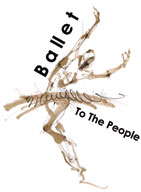Is it possible that art is more than personal experience? If you recognize that your voice contains all the voices that came before you, then you will realize that when you speak you do not speak alone. All the people who made your presence possible on earth speak with you. When you begin to… explore this, you will realize how immense that voice really is.
– Anne Bogart
Lisa Kotecki is busy playing traffic cop to all the voices that came before her and on May 22nd, audiences at Stage Werx in San Francisco found her navigating the sociocultural gridlock of her Arab American heritage in a candid, funny and occasionally provocative one-woman show.
Kotecki grew up in Texas, her mother a Syrian immigrant who married a Polish American. She regularly passes for Hispanic: growing up, “people would only know of my heritage when I decided to tell them.” Her visits to her mother’s homeland were “magical… before it became the warzone it is now… I imagined that this was how adopted kids feel when meeting their birth parents for the first time.”
Of course, this was the pre-9/11, pre-Axis of Evil time period. “I was in college when 9/11 happened, and that’s when my relationship to what it meant to be from that part of the world shifted. Earthquake-shifted. I was terrified for my family here in the U.S., who lived in a predominantly Arab community.”
She recalls the escalation of anti-Arab sentiment and the hate crimes. “I went from feeling completely integrated and one with my environment, to feeling more and more separate as an American and Arab. It felt as if the two were no longer allowed to be together; you were one or the other. But I felt like I was both. I am both. Then again, the struggle was very different for those of my relatives in America who carry a name that makes it obvious where they came from.”
She would go on to study Middle Eastern history in college, and imbibe as much of that complex civilization as she could from her perch among that growing tribe of ‘Third Culture Kids’ – whose signature traits, sociologists report, are resilience, insecurity, and a propensity to deal with problems by leaving town. She took up bellydance, in a modern “fusion” incarnation, as a way of getting closer to her heritage – even though the art form is considered low-class in most parts of the Arab world and effectively violates what she drolly calls her mother’s “4th cardinal rule: don’t become a prostitute.”
Kotecki left town when California beckoned. Though true to the adage, she confesses with a grin: “You can take a girl out of Texas, but you can never take Texas out of the girl.”
In Arab Love Arab Freedom, Kotecki speaks with great affection of the strong women in her life – especially her mother and grandmother, both educated, independent and accomplished, even as she points out the widening chasm between their worlds and hers. She tries to reconcile the “rules” and expectations for women who straddle borders as she does, in the post 9/11 world. She embraces feminism, unsure if feminism will embrace her back. She stumbles in and out of love, each relationship raising more questions than it answers. She makes some choices that she worries will outrage her mother.
On stage, Kotecki is breezy and graceful, with a hint of the sinuosity of a bellydancer, even in jeans and a T-shirt. Her face is luminous, her wide-eyed candour engaging. There is a vulnerability and a steeliness to her presence – part warrior, part sylph.
Whether describing with deadpan earnestness her grade school lunches of PBJP’s (peanut-butter-and-jelly pitas), taking care to point out that there are no round sandwich bags, or the calamity of having to explain to her mother that she has fallen in love with someone completely unacceptable to her mother, Kotecki drags us along on her journey of self-discovery, like passengers on a road trip in thrall to our slightly wacky and unpredictable, but supremely entertaining and seductive driver.
This was Kotecki’s first solo stand-up performance, which she has honed under the experienced eye of writer-director Martha Rynberg, and which was presented under the auspices of the Asian Pacific Islander Cultural Center and the San Francisco Arts Commission. If we’re lucky, she’ll continue to muse out loud, and take this show on the road. There are few Arab American female voices in the volatile conversation around race and gender; Kotecki’s captivating, understated performance should resonate broadly with hapas and mestizas, and anyone who ever had a mother.
– More about Lisa Kotecki in our preview for the Huffington Post. –

